Romania officially takes over the Presidency of the Council of the European Union
On January 10th, Romania officially took over for the first time the rotating presidency of the Council of the European Union, in a ceremony held at the Romanian Athenaeum and attended by Romanian and EU leaders.
Twelve years since its accession, Romania undertakes a key role at European level, with the stated goal of contributing to the consolidation of a more cohesive, more united and stronger Europe, the Romanian head of state Klaus Iohannis said in his address. Romania will head the Council of the European Union with dignity, PM Viorica Dancila said in her turn, and added that she would like the Union to be more robust, more united and more interconnected at the end of the Romanian term in office.
The president of the European Council Donald Tusk gave a poignant speech in Romanian. Among others, he said that it was up to Romania to prove whether its politics may be a good example or a harsh warning for a European Union struggling with the rise of populism and nationalism. He also urged Romanians to safeguard the foundations of political civilisation, freedom, integrity, respect for truth in public life, the rule of law and Constitution, in Romania and in Europe.
Romania takes over the presidency of the Council of the European Union at a crucial time, the president of the European Commission Jean-Claude Juncker said. He mentioned that the Union would not be complete without Romania, and that Romania also belongs in the Schengen area. I am counting on the energy and unity of the Romanian nation, in order to decide what we must do and what we can do in the months to come, Juncker concluded.
The launch of the Romanian presidency of the Council of the European Union was celebrated with a concert at the Romanian Athenaeum given by the European Union Orchestra, which performed George Enescus Romanian Rhapsody no 1 and Beethovens Ode to Joy, which has been the anthem of the European Union since 1985.
On Friday in Bucharest, the European Commission chief Jean-Claude Juncker had talks with president Klaus Iohannis, PM Viorica Dancila and other Romanian officials. The European officials had meetings with the Romanian Cabinet ministers who will chair working meetings with their EU counterparts in the next 6 months, both in Bucharest and in Brussels.
Romania chairs first General Affairs Council meeting in Brussels
The Romanian minister for European affairs George Ciamba took part in Brussels in the General Affairs Council meeting, the first chaired by Romania since the start of its presidency of the Council of the European Union on January 1. Ciamba presented Romanias priorities for its 6-month term in office, highlighting the 4 main directions: Europe of convergence, a safer Europe, Europe – a stronger regional actor, and Europe of shared values.
Talking about the European context in which Romania holds the rotating presidency, which is marked by a number of complex processes such as Brexit, the negotiations on the next multi-annual financial framework, the European Parliament elections due in May 2019, and the reflection on the future of the Union, Ciamba said that now more than ever the Union needs unity and cohesion.
Tension between the Presidency and the Government over appointments
The conflict between the president and the government in Romania carries on. President Klaus Iohannis on Wednesday rejected again, for the 2nd time, the appointment of Adina Florea as chief prosecutor of the National Anti-Corruption Directorate (DNA) and Anca Jurma, the interim chief prosecutor, announced she no longer wanted an extension of her term, which led the prosecutor general to make a new nomination. Thus he appointed the deputy chief prosecutor of the DNA Calin Nistor as interim chief prosecutor.
The position remained vacant after Laura Codruta Kovesi was dismissed by a presidential decree issued on July 9, 2018 by president Iohannis who had to enforce a decision of the Constitutional Court.
Also this week, the PM Viorica Dancila forwarded to president Iohannis the same nominations for the positions of deputy prime minister and minister of regional development and public administration and minister of transports, namely Lia Olguta Vasilescu and Mircea Draghici. According to the PM, the two nominations comply with the conditions stipulated by law and the two persons are compatible with the respective positions.
On Thursday the Romanian president had sent the PM the motivation explaining the reasons why he had previously rejected the two persons nominated.
Romanian economy reported very good results in 2018
Last year Romania reported very good economic results, the PM Viorica Dancila announced in the first government meeting of 2019. She said that in the first 9 months of 2018, Romania reported a 4.2% economic growth rate, two times more than the rate reported by the EU, which was due mainly to industry. The PM also mentioned a drop in the unemployment rate in 2018 as well as an increase in the absorption rate of European funds, of more than 26%.
(translated by: Ana-Maria Popescu, Lacramioara Simion)





